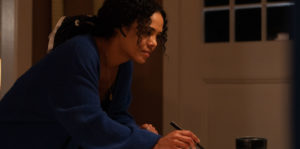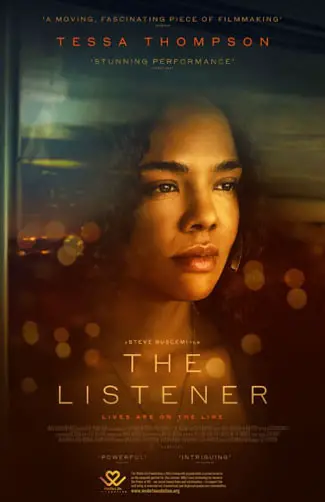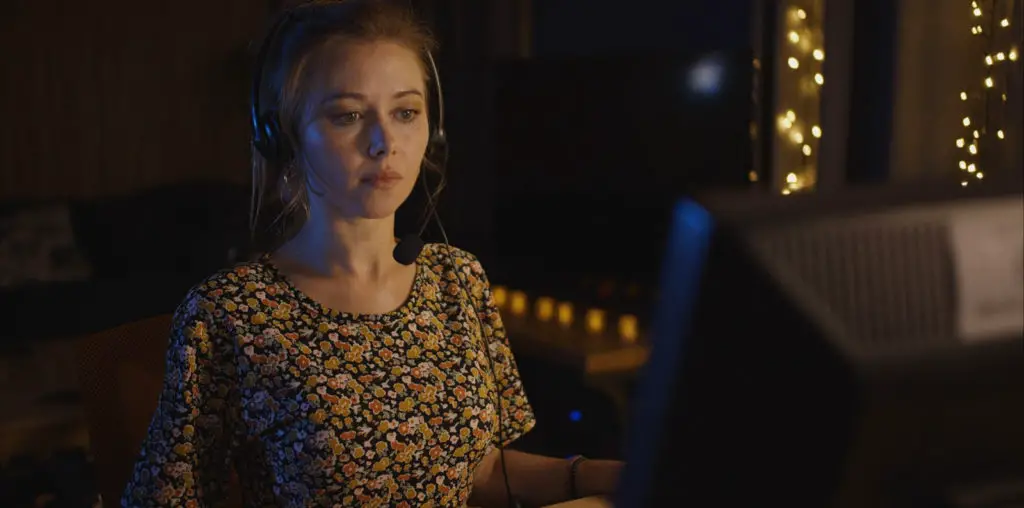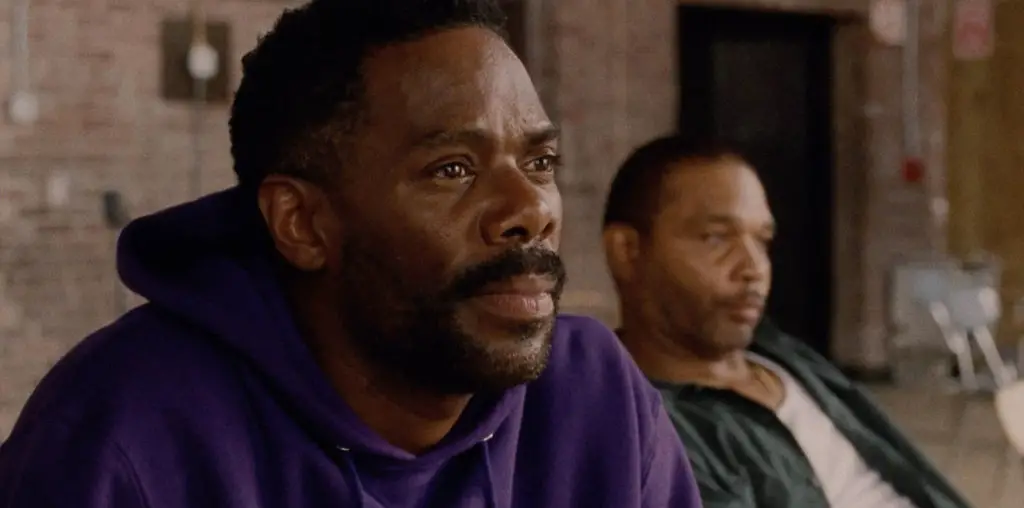
Directed by Steve Buscemi, The Listener follows Beth (Tessa Thompson), a helpline volunteer, who fields an unending swarm of calls from people in distress, under duress, the lonely, the perverted, and the lost. Her years of being a volunteer have taken their toll, and she is at a crossroads where she will either walk away or continue to take on other people’s pain as an act of penance for her past.
Beth’s soft, professionally distant tone gives viewers the sense that Beth is on autopilot at this point in her years of volunteering. She is almost robotic, almost Siri-like, but there is a kindness and beauty in her voice that allows her to say so little and yet make such an impact on the people who seek her help.
Tessa Thompson makes you feel the exhaustion, frustration, and despair that the character is subjected to during her shift. She expertly exudes the emotional toll it takes on the character, who, in one instance, deals with a nice person who just needs to bend someone’s ear and then deals with a young girl whose life is potentially in danger from an abusive boyfriend.
She’s brought into the lives of strangers, brought into the chaos, but for the most part, the calls end without a resolution. Did they kill themselves? Did they go deeper into a depression? Is she actually helping any of them? When can she walk away? Should she feel guilty for doing so? The film, taking place on a single night and in a single location, captures this psychological and emotional dilemma thanks to Tessa Thompson’s performance.

“…at a crossroads where she will either walk away or continue to take on other people’s pain as an act of penance…”
All that being said, there is essentially no plot. There is a much larger overarching story, as I detailed above, that, upon reflection, makes sense, but while you’re in it, the film drags. Tessa Thompson answering phone calls is not enough to justify a feature-length film. A short film absolutely would have knocked this out of the park, but there is just nothing holding your attention here.
The calls themselves aren’t even that engaging, considering you are watching a movie. I understand that is part of the real experience, but it is too true to life. It never seeks to raise the stakes, and therefore, interest is lost after 15 minutes.
Beth’s world is established after a few phone calls, and you wait for a singular event to create drama, and it just doesn’t come. The calls keep coming, and nothing is developed. Everything complex about Beth is revealed in the final minutes of the film in the middle of a very existential conversation that might have interested me in college at 3 a.m. after a night out and bacon and ranch-covered pizza. Still, as a climax to a feature film, it falls flat.
The film felt like a jumping-off point for an interesting movie. Helpline volunteers, all alone, field a roulette of calls, and then BAM, something crazy happens, and she has to go beyond the duty of a volunteer to save someone’s life. I’d watch that film. But instead, the writers of this film just thought listening to phone calls was enough.
It elicits a similar response when you see a horror movie and the main character hears a door close in the house that they thought they were alone in. In real life, that would be terrifying, but in a movie, it’s just not enough.

"…captures this psychological and emotional dilemma thanks to Tessa Thompson’s performance"


